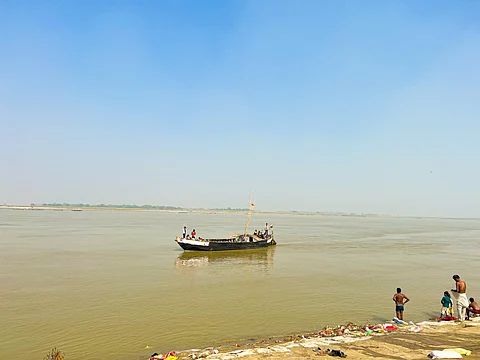

The situation of the Ganga river is far from improving in Bihar. A report filed by the Bihar government in the National Green Tribunal (NGT) indicates that the river water contains such high levels of faecal bacteria (faecal coliform) that it is unfit for bathing.
The situation is such that more than 68 per cent of the sewage is directly flowing into the river.
The NGT, which is hearing the case pertaining to the cleaning and management of the river, has expressed severe displeasure over the deteriorating condition of the river in Bihar.
The hearing is being conducted by the NGT’s bench headed by Justice Prakash Srivastava which has instructed the National Mission for Clean Ganga (NMCG) to make effective use of its powers and authorities. NMCG is responsible for cleaning the Ganga across the states.
Bihar generates 1,100 million litres of sewage daily, but currently, only 343 million litres of sewage can be treated.
Around 750 million litres of untreated sewage is flowing directly into the Ganga. Furthermore, six out of the eight sewage treatment plants (STPs) in the state are not functioning according to required standards.
The NGT found that NMCG is not effectively utilising its powers and is merely limited to correspondence and meetings. In its observations, the bench reminded NMCG of its powers.
The bench stated, “Under Section 41 of the Ganga (Rejuvenation, Conservation and Management) Order 2016, NMCG has wide powers. These include the authority to cancel projects, halt and reallocate funds, issue directives to officials or entities, and take action to ensure compliance.”
The NGT has directed NMCG to use its powers to formulate a concrete action plan for pollution control and present it by 18 March 2025. Additionally, considering the seriousness of the matter, the NGT has made the Principal Secretary of the Bihar Department of Environment a party to the case and instructed them to file a response before the next hearing.